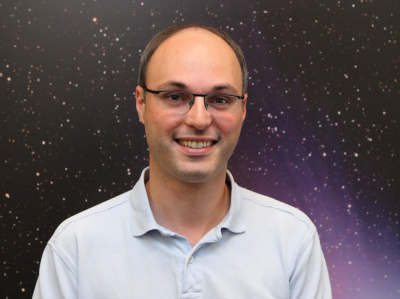Prof. Christophe Lovis

Christophe Lovis
Professeur associé / Associate Professor
S414
+41 22 379 24 07
E-mail
Christophe Lovis' research focuses on the multiple applications of high-resolution spectroscopy to the field of exoplanets. He is a specialist of high-precision radial velocity measurements for the detection of exoplanets, and has contributed to the development of several state-of-the-art spectrographs, e.g. HARPS, HARPS-N, and ESPRESSO. In particular, Christophe Lovis has been the main developer of the data reduction pipelines for these instruments. He contributed to the discovery and characterization of many low-mass planets in the super-Earth to sub-Neptune regime. Prof. Lovis is currently leading the transit follow-up working group within the ESPRESSO Consortium.
Christophe Lovis is also active in the study of exoplanet atmospheres using high-resolution spectroscopy, and he is leading a research project on this topic within the NCCR PlanetS. Spectroscopic transit observations enable detailed investigations of atmospheric chemistry and dynamics, and he is keen on applying this technique to low-mass exoplanets with instruments like NIRPS and ELT-HIRES.
Christophe Lovis is the Principal Investigator of the RISTRETTO projet, which aims at pioneering reflected-light spectroscopy of nearby exoplanets at the VLT. This novel instrument will combine for the first time an extreme adaptive optics system to a high-resolution spectrograph at the diffraction limit of the telescope. Its main science goal is the characterization of Proxima b, a temperate rocky planet around our closest stellar neighbour. Prof. Lovis is also the Swiss Co-PI for the ELT-HIRES instrument, which aims at detecting biosignatures in the atmospheres of terrestrial planets orbiting nearby stars.
Research Team
- Dr Baptiste Lavie (postdoctoral researcher)
- Dany Mounzer (research & teaching assistant)
- Dr Martin Turbet (postdoctoral researcher)
Technical Team
- Dr Danuta Sosnowska (software engineer)
- Dr Nicolas Blind (optical engineer)
- Dr Jonas Kühn (optical engineer)
Within the Department of Astronomy, the group strongly interacts with the other exoplanet research groups, and the engineering and technical teams.
